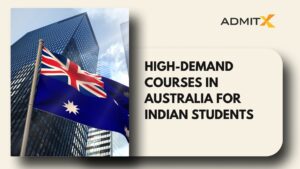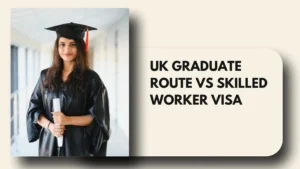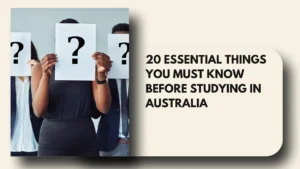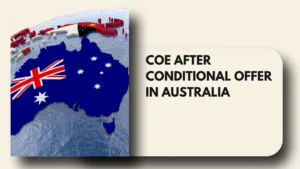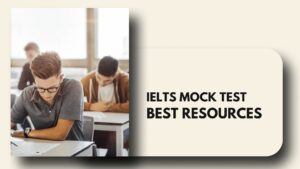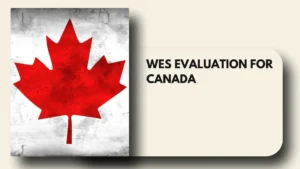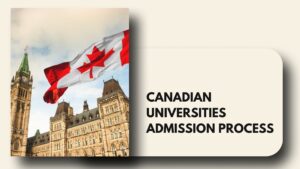- US F‑1 visa approvals depend on proving genuine student intent, showing credible funding matching the I‑20, and presenting a strong return‑to‑India plan.
- Interviews focus on study plans, university fit, academic readiness, financial proof, and post‑graduation goals, so answers must be concise and fully consistent with your I‑20 and DS‑160.
- Chances improve when you state exact costs and funding splits, carry complete proof documents, and answer confidently while staying calm under follow‑up questions.
- Most Important US F-1 Visa Interview Questions and How to Answer Them
-
F-1 Visa Interview Sample Answers for Indian Students
- 1. Why do you want to study in the United States?
- 2. Why can’t you continue your education in your home country?
- 3. What will you study, and why did you choose this major?
- 4. How does this program relate to your previous studies or work experience?
- 5. Which university will you attend, and why?
- 6. How many universities did you apply to, and how many accepted you?
- 7. What do you know about your university’s location?
- 8. What are your TOEFL, IELTS, GRE, GMAT, or SAT scores?
- 9. What is your GPA or overall academic performance?
- 10. How will you adjust to the U.S. education system?
- 11. What is the total cost on your I-20, and how will you fund it?
- 12. Who is sponsoring your education, and what is their occupation and annual income?
- 13. Do you have scholarships or assistantships? Can you show proof?
- 14. What are your plans after graduation?
- 15. Do you plan to work in the U.S. after graduation?
- 16. How will this U.S. degree benefit your career in India?
- 17. Have you traveled to the United States before, or do you have relatives there?
- 18. Why did you change your major or career direction?
- 19. Can you explain recent large deposits in your bank statement?
- 20. Why should you be granted an F-1 visa?
-
Top 10 Best Practices to Ace Your F-1 Visa Interview
- 1. Clearly Articulate Your Study Purpose
- 2. Show Deep Knowledge of Your University and Program
- 3. Demonstrate Academic and Professional Preparedness
- 4. Present a Detailed and Credible Financial Plan
- 5. Prove Strong Home Country Ties
- 6. Keep Your Answers Short, Honest, and Focused
- 7. Organize and Familiarize Yourself With Documents
- 8. Maintain Professional Body Language and Appearance
- 9. Respond Calmly to Follow-Up Questions
- 10. Practice Targeted Mock Interviews
- Key Takeaways by AdmitX
- Frequently Asked Questions (FAQs)

Imagine standing at the visa window. The officer scans your I-20, asks a few direct questions, and within minutes your future is decided. It feels intense, but it is also predictable. When you know the questions and highlight the right points, you replace anxiety with clarity.
Visa officers usually look for three key things in your profile:
- You are a genuine student with a clear academic purpose.
- You have sufficient and legitimate financial resources to complete your studies.
- You plan to return to your home country after graduation.
These factors form the basis of most USA interview questions for international students, and the key is to prepare answers that address these points in the most relevant way. In this guide, we cover the most common US F-1 visa interview questions for 2026, explain what to highlight in your answers, and share tips to help you secure approval.
Most Important US F-1 Visa Interview Questions and How to Answer Them
To prepare deeply and smartly, practice multiple versions of the same question type, understand what the officer is really assessing, and structure answers that stay concise, consistent with your I‑20 and DS‑160.
Below are the core F‑1 visa interview questions, along with different ways the questions may be asked and the key points you should highlight in your answers.
1) Study Plans and Academic Background
Why do you want to study in the United States?
What to focus on:
- Discuss the global recognition of US universities and their reputation for producing industry leaders in your chosen field. Mention specific features such as cutting-edge labs, advanced research facilities, and direct industry linkages.
- Highlight the cultural diversity and international networking opportunities that can broaden your perspective and help you adapt to global work environments.
- Provide examples of unique opportunities such as specialised electives, live case studies with companies, or access to startup incubators that you cannot access in your home country.
Why can’t you study this course in your home country?
What to focus on:
- Emphasise differences in curriculum depth, access to the latest technology, teaching methods, and industry collaboration
- Explain how US universities often have professors who are industry practitioners or researchers at the forefront of innovation, offering real-world insights.
- Avoid speaking negatively about your country; frame it positively by saying the US program adds dimensions to your learning that local programs currently cannot provide.
What will you study and why did you choose this major?
What to focus on:
- Clearly explain your academic and professional interests, linking them to the course’s subjects and skills.
- Use a brief personal anecdote, such as a project, internship, or challenge that sparked your interest in the field.
- Connect the major to your long-term career plan, explaining how it bridges your current capabilities with your desired expertise.
How does this program relate to your previous studies or work?
What to focus on:
- Show the logical progression from your undergraduate studies or work experience to this program. For example, if you studied engineering and are pursuing an MBA in the USA, explain how you want to combine technical skills with management expertise.
- Highlight transferable skills you already have, such as problem-solving, analytical thinking, teamwork, or leadership.
- If you are changing fields, explain the motivation (such as new career goals or industry trends) and how you’ve prepared with certifications, workshops, or relevant volunteer work.
2) University Selection and Fit
Which university will you attend and why?
What to focus on:
- Give specific academic reasons, such as the faculty’s research in your area of interest, notable alumni in your field, or a unique program structure.
- Mention rankings, accreditations, or partnerships with companies that provide strong placement or internship prospects.
- Include non-academic factors like student support services, clubs, and location benefits that fit your learning style and personality.
How many universities did you apply to and how many accepted you?
What to focus on:
- Be transparent but strategic. If you applied to multiple, explain that you shortlisted universities after thorough research on curriculum, faculty, and career services.
- If accepted by more than one, mention how you weighed options before choosing the best fit.
- If only one accepts you, frame it as a perfect match that aligns with your goals and background.
What do you know about your university’s location?
What to focus on:
- Talk about the city’s industry presence related to your field of study, such as tech hubs for computer science or financial districts for MBA students.
- Mention opportunities for internships, part-time work, or networking events in the area.
- Include practical lifestyle details such as climate, transportation, and cultural activities to show preparedness for life there.
3) Academic Capability and Readiness
Which standardized tests have you taken, and what are your scores?
What to focus on:
- State your scores confidently without hesitation.
- Mention your preparation strategies, like consistent practice tests, coaching classes, or self-study methods that helped you score well.
- If a score is slightly below your target, highlight strengths in other areas such as a high GPA, strong recommendation letters, or relevant work achievements.
What is your GPA or overall academic performance?
What to focus on:
- Share your GPA along with academic highlights like being in the top percentile, receiving awards, or completing challenging research projects.
- If grades improved over time, explain how you developed better study habits and time management skills.
- If you had weaker semesters, show how you overcame challenges and ended on a strong note.
How will you adjust to the US education system?
What to focus on:
- Show that you understand US education is interactive and application-oriented, with more emphasis on projects, presentations, and teamwork than rote learning.
- Give examples from your past where you thrived in similar learning environments, such as debate clubs, group projects, or independent research.
- Mention that you are aware of and ready to use campus resources such as writing centres, career services, and peer tutoring.
4) Financial Capability and Proof
What is the total cost on your I-20 and how will you fund it?
What to focus on:
- Be prepared to state the exact total cost mentioned on your I-20 form, including tuition fees, living expenses, health insurance, and any additional university charges.
- Break down your funding plan clearly. For example, explain how much will come from family savings, how much from an educational loan, and whether any scholarships are covering a portion.
- Keep all documentary evidence ready. This may include recent bank statements, fixed deposit certificates, property sale agreements, or a sanctioned loan letter from a recognised financial institution.
Who is sponsoring your education and what is their occupation and annual income?
What to focus on:
- Clearly introduce your sponsor by stating their name, relationship to you, job title, and organisation.
- Mention their annual income and explain how it is sufficient to comfortably cover your education and living expenses in the United States.
- Provide details about their job stability, such as how long they have worked in their current role or industry.
- Be ready to present proof in the form of salary slips, income tax returns, and official employment verification letters.
Do you have scholarships or assistantships? Can you show proof?
What to focus on:
- Mention the exact name of the scholarship or assistantship, the amount awarded, its duration, and whether it is merit-based, need-based, or offered by a department.
- Explain how receiving this award demonstrates your academic or professional excellence.
- Have official award letters or emails printed and organised for quick presentation during the interview.
5) Post-Graduation Plans and Ties to India
What are your plans after graduation?
What to focus on:
- Present a clear, realistic plan for your career once you return to India. This may include joining a specific industry, working with a particular company, starting your own business, or taking on a leadership role in your family business.
- Mention that your education in the US will give you specialised skills, advanced knowledge, and international exposure that will make you more competitive in the Indian job market.
- If possible, support your answer with facts or industry data that show the demand for your skills in India.
Do you plan to work in the US after graduation?
What to focus on:
- If you intend to work temporarily in the US, explain that it would be for Optional Practical Training (OPT) to gain practical exposure before returning to India.
- Clarify that your long-term career and personal commitments remain in India.
- Avoid giving the impression that you plan to settle permanently in the US.
How will this US degree benefit your career in India?
What to focus on:
- Give concrete examples of skills and knowledge you will acquire during your course that are in high demand in India.
- Mention how exposure to international markets, teaching methods, and advanced tools will help you bring new approaches to your work in India.
- If relevant, highlight the possibility of introducing global best practices or building cross-border business relationships.
6) Integrity and Consistency
Have you travelled to the United States before or do you have relatives there?
What to focus on:
- Answer honestly and briefly. If you have visited before, mention the purpose, such as tourism, conferences, or short-term courses, and state the duration of your stay.
- If you have relatives in the US, explain your relationship with them and clarify whether they will be involved in your stay during studies.
Why did you change your major or career direction?
What to focus on:
- Provide a clear, logical reason for the shift, such as discovering a new area of interest, seeing better career prospects in another field, or being inspired by industry trends.
- Highlight any preparation you have done for the change, such as certifications, short-term courses, internships, or self-learning projects.
- Show that this decision is well thought out and not impulsive.
Can you explain recent large deposits in your bank statement?
What to focus on:
- Be prepared to state the exact source of the funds. This could be the sale of property, the maturity of a fixed deposit, an educational loan disbursement, or savings accumulated over time.
- Have supporting documents ready, such as property sale agreements, fixed deposit certificates, or official bank letters.
- Make sure your explanation is consistent with the documents you present, as inconsistencies can raise doubts during the interview.
F-1 Visa Interview Sample Answers for Indian Students
We have compiled 20 most common questions asked in a US F-1 visa interview with structured, realistic answers. These are designed to reflect how successful students actually respond during interviews, with clear reasoning, context, and professional tone.
1. Why do you want to study in the United States?
I want to study in the U.S. because it offers a unique combination of world-class curriculum, access to cutting-edge AI labs, and opportunities to work on real-world industry projects that directly enhance my skills in data analytics and AI implementation.
The exposure to global faculty, industry-driven research, and international networking will significantly strengthen my professional profile and prepare me for leadership roles in India’s technology sector.
2. Why can’t you continue your education in your home country?
Although India has reputable institutions, the program I aim for in the U.S. provides a far more comprehensive blend of practical exposure, industry collaborations, and advanced specialization in AI and machine learning. Indian programs do not offer the same depth of hands-on projects, live case studies, and access to research networks that align with my long-term career ambitions.
3. What will you study, and why did you choose this major?
I will pursue a Master’s in Data Science. During my undergraduate studies in Computer Science and internships in analytics, I realized my passion for using data to solve complex business problems.
This program offers a structured pathway to gain advanced machine learning techniques, AI application skills, and practical experience with industry-standard tools, which are essential for my goal of becoming a data strategist leading AI initiatives in Indian tech companies.
4. How does this program relate to your previous studies or work experience?
During my internship at [Company Name], I worked on analyzing large datasets to optimize customer engagement, achieving a measurable 15% improvement in retention rates. My undergraduate projects involved statistical modeling and predictive analysis, giving me foundational knowledge.
This Master’s program will build on my technical and analytical skills, allowing me to apply them in larger, more complex projects while bridging gaps between theoretical knowledge and industry-level application.
5. Which university will you attend, and why?
I have chosen [University Name] because of its strong research labs in AI and Data Analytics, faculty who are leaders in machine learning applications, and partnerships with top tech firms for internships and projects. The program also offers specialized electives in AI ethics, predictive modeling, and cloud-based data systems, which align directly with my career objectives.
Additionally, the university has active student communities, hackathons, and startup incubation programs that will help me develop practical and leadership skills.
6. How many universities did you apply to, and how many accepted you?
I applied to five universities and received offers from three. After careful evaluation, I selected [University Name] because its curriculum, faculty expertise, and industry connections best match my academic goals and career aspirations.
7. What do you know about your university’s location?
The university is in [City Name], which is a major technology and innovation hub. This provides access to internships, industry networking events, and professional workshops. Additionally, the city offers a balanced lifestyle with public transport, student-friendly housing, and cultural activities that will support both my academic and personal growth.
8. What are your TOEFL, IELTS, GRE, GMAT, or SAT scores?
I scored 110 on TOEFL and 320 on GRE. These results showcase my readiness for dynamic coursework and my ability to communicate effectively in an academic environment. I prepared through self-study, practice tests, and coaching classes to ensure consistent performance.
9. What is your GPA or overall academic performance?
I graduated with a GPA of 8.7/10, consistently ranking in the top 10% of my class. I also completed research projects and internships that strengthened my practical knowledge and analytical skills. Improvements over time reflect my commitment to continuous learning and adaptability.
10. How will you adjust to the U.S. education system?
I am prepared to adapt to the U.S. education system’s emphasis on interactive learning, project-based assessments, and teamwork. My prior experience with collaborative projects, coding competitions, and research assignments has equipped me to actively participate, lead group initiatives, and independently apply knowledge.
I will also pursue academic support centers and mentorship programs for a smooth transition.
11. What is the total cost on your I-20, and how will you fund it?
The total cost on my I-20 is $80,000, including $50,000 for tuition, $20,000 for living expenses, and $10,000 for insurance and other fees. Funding will come from family savings of $20,000, a sanctioned education loan of $50,000, and a merit-based scholarship of $10,000.
I have all supporting documents ready, including bank statements, loan sanction letters, and the scholarship award lette
12. Who is sponsoring your education, and what is their occupation and annual income?
My father is sponsoring my education. He is a Senior Manager at [Company Name], earning INR 18 lakhs annually. His long-standing professional experience and stable income ensure he can fully support my education and living expenses. I have all necessary documents, including salary slips, tax returns, and an affidavit of sponsorship.
13. Do you have scholarships or assistantships? Can you show proof?
Yes, I received a merit-based scholarship covering 20% of my tuition. The award reflects my academic excellence and aligns with the program’s selection criteria. I have the official letter ready for verification.
14. What are your plans after graduation?
After graduation, I plan to return to India and work as a Senior Data Analyst or AI Consultant at a leading IT or analytics company such as TCS, Infosys, or a multinational with AI initiatives.
I aim to lead data-driven projects, implement AI solutions, and eventually move into a managerial or team leadership role where I can leverage the international exposure and technical expertise gained from my U.S. education.
15. Do you plan to work in the U.S. after graduation?
I may utilize Optional Practical Training (OPT) for up to 12 months to gain hands-on industry experience. However, my long-term plan is to return to India, where I can apply these skills to contribute to data-driven decision-making and AI innovation in the Indian technology sector.
16. How will this U.S. degree benefit your career in India?
This degree will provide advanced technical knowledge, exposure to international best practices, hands-on experience with cutting-edge tools, and access to a global professional network. These advantages will make me competitive for high-responsibility roles in analytics strategy, AI project leadership, and technology innovation in India.
17. Have you traveled to the United States before, or do you have relatives there?
I have not traveled to the U.S., and I do not have close relatives there. My focus is solely on pursuing my education and gaining professional skills in my field of interest.
18. Why did you change your major or career direction?
I initially focused on software development but discovered my strengths and passion lie in analyzing complex data to drive strategic business decisions. I pursued online certifications, internships, and practical projects in data science to prepare for this transition. This decision is strategic and aligns with long-term career goals in AI and analytics leadership.
19. Can you explain recent large deposits in your bank statement?
The deposits came from matured fixed deposits and an approved education loan. I have supporting documents, including bank statements, FD certificates, and loan sanction letters, which clearly verify the sources.
20. Why should you be granted an F-1 visa?
I should be granted an F-1 visa because I have a well-defined academic plan, verified financial support, and a clear long-term career path in India. My program and university choice are deliberate, designed to acquire skills not readily available in India.
I am committed to returning home after completing my degree to contribute meaningfully to the technology sector with the knowledge and global exposure gained in the U.S.
Top 10 Best Practices to Ace Your F-1 Visa Interview
After understanding the major F-1 visa questions and model answers, it is important to adopt strategic practices that make your responses more effective. These best practices focus on preparation, presentation, and confidence to help you leave a strong impression on the visa officer.
1. Clearly Articulate Your Study Purpose
Be precise about your reason for studying in the US. Name your program, university, and expected graduation timeline. Explain how this specific program will fill a skill gap or advance your career in India. Avoid vague answers such as “to explore opportunities” because officers are trained to detect non-specific intentions.
2. Show Deep Knowledge of Your University and Program
Highlight specific elements of your course, faculty, research centers, or special projects. Explain why these are critical to your career path. Mention one or two concrete examples, such as a lab, a co-op program, or a center of excellence, that you plan to leverage. This signals that your application is research-driven and deliberate.
3. Demonstrate Academic and Professional Preparedness
Discuss your academic achievements, relevant coursework, standardized test scores, and work experience. Explain how your prior education and professional background make you ready for the program. Provide measurable examples like projects, leadership initiatives, or internships that reflect your readiness.
4. Present a Detailed and Credible Financial Plan
Explain how tuition, living costs, and other expenses will be covered. Break down contributions from savings, family sponsorship, loans, or scholarships. Be ready with exact figures and official documents. Avoid vague statements; officers are trained to spot inconsistencies in financial preparedness.
5. Prove Strong Home Country Ties
Demonstrate compelling reasons for returning to India after your degree. Mention career opportunities, family commitments, property, or business responsibilities. Show how your US education directly benefits your future career in India. Officers look for credible ties that indicate you will not overstay your visa.
6. Keep Your Answers Short, Honest, and Focused
Practice delivering responses in one to two clear sentences. Avoid overexplaining, adding unnecessary details, or giving hypothetical plans. Concise and truthful answers build trust and reduce the risk of misinterpretation.
7. Organize and Familiarize Yourself With Documents
Make sure your documents are complete and easily accessible, including I-20, DS-160, admission letters, bank statements, and transcripts. Familiarity allows you to answer questions without hesitation and demonstrates preparedness.
8. Maintain Professional Body Language and Appearance
Dress formally as if attending a job interview. Maintain steady eye contact, sit upright, and speak clearly. Non-verbal cues convey confidence, seriousness, and credibility.
9. Respond Calmly to Follow-Up Questions
Visa officers often probe to check consistency. Respond patiently, repeat key points if necessary, and avoid defensive behavior. Calm composure signals maturity and preparedness.
10. Practice Targeted Mock Interviews
Conduct mock interviews with experts or alumni who have gone through the process. Focus on the most commonly asked questions about academic plans, finances, career goals, and ties to India. Record yourself to identify areas for improvement in tone, clarity, and confidence.
Key Takeaways by AdmitX
- Be Thoroughly Prepared and Specific: Success comes from knowing your program, university, and career goals in detail. Clear, precise answers tied to your DS-160, I-20, and financial documents demonstrate credibility and thoughtfulness.
- Show Honest Intent and Strong Ties to India: Consistency, transparency, and a realistic post-graduation plan are key. Officers respond positively when students can clearly articulate why they will return home and how their U.S. education benefits their career.
- Communicate Confidently and Professionally: Concise, well-structured answers, backed with examples from academics or work, leave a strong impression. Combining clarity with calm body language and confidence signals readiness for the U.S. program.
At AdmitX, we specialize in transforming study abroad aspirations of Indian students into success stories. Our expert counselors have guided thousands of Indian students to top universities worldwide with comprehensive support from course selection to visa approval.
We provide personalized counseling, university selection guidance, SOP review services, study abroad document templates, free IELTS bootcamp course, scholarship assistance, and visa support services specifically designed for Indian students.
Book your free study abroad counseling session today and take the first step toward your international education journey!
Frequently Asked Questions (FAQs)
What are the most common questions asked in a USA F‑1 student visa interview?
Common F‑1 visa interview questions focus on your academic plans, the university you will attend, your readiness for the U.S. education system, your financial capability to fund the entire program, and your post‑graduation plans in India.
How should I answer “Why do you want to study in the United States?” in an F‑1 visa interview?
Highlight the global recognition of U.S. universities, advanced facilities like modern labs and research centers, industry collaborations, and how these align directly with your career goals in India.
What is the best way to explain why I cannot study my chosen course in India?
Point out academic or industry differences such as curriculum depth, research opportunities, and live projects that are more advanced in the U.S., while keeping your answer respectful toward Indian institutions.
How do I prepare to talk about my university choice in an F‑1 visa interview?
Mention specific reasons like faculty expertise, research labs, program rankings, internship opportunities, and location-related industry exposure. Show that your choice was deliberate after thorough research.
What financial proof should I carry for my USA F‑1 student visa interview?
Carry documents showing you can fund your I‑20 total cost, including recent bank statements, fixed deposits, sanctioned education loans, scholarship award letters, and income proof of sponsors.
How can I prove my academic readiness for studying in the U.S.?
Share your GPA, test scores (TOEFL, IELTS, GRE, GMAT), academic projects, and relevant work experience. Show that these meet or exceed your university’s requirements.
How should I answer questions about my plans after graduation from a U.S. university?
Present a clear plan to return to India for specific roles in your field, backed by market demand, family or business commitments, and how your U.S. degree improves your prospects.
Can I mention Optional Practical Training (OPT) during my F‑1 visa interview?
Yes, but clearly state that OPT will be short-term practical experience before you return to India to apply the skills gained.
How should I explain large deposits in my bank statement to a U.S. visa officer?
State the exact source, such as property sale proceeds, fixed deposit maturity, sanctioned loan disbursement, or accumulated savings, with all supporting proof ready.
What are the top tips to succeed in a USA F‑1 student visa interview?
Be clear about your study purpose, know your program and university in depth, present a credible financial plan, show strong ties to India, keep answers short and honest, and practice with mock interviews.




